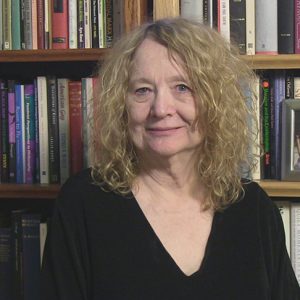
 Betty Cannon, the author of Sartre and Psychoanalysis, offers a playful, active, experientially based form of supervision that is deeply and specifically grounded in the philosophy of Sartre.
Betty Cannon, the author of Sartre and Psychoanalysis, offers a playful, active, experientially based form of supervision that is deeply and specifically grounded in the philosophy of Sartre.
This group is a place to hone skills and consider important issues of therapy from the perspective of existential philosophy. Combining the leader’s experience with the wisdom of the group fosters an active experientially oriented and interpersonally open way of doing supervision. It includes role-playing clients as well as looking at stuck points in therapy – stuck points that may belong to the therapist or supervisor as well as the client. It uses body-oriented as well as verbal interventions to get beyond words to the pre-reflective bodily-lived intentionality of all three.
Applied Existential Supervision is rooted in a psychotherapeutic approach developed and taught by Betty Cannon at the Boulder Psychotherapy Institute for more than 30 years. Thoroughly and specifically grounded in the philosophy of Sartre, Applied Existential Psychotherapy also draws inspiration from Gestalt Therapy, Rogerian person-centred therapy, body-oriented psychotherapy, and classical and contemporary psychoanalysis. Betty agrees with British object relations theorist D.W. Winnicott that psychotherapy is (or ought to be) a very special form of ‘two people playing together. When one of them, hopefully, the client, is unable to play, therapy becomes two people learning to play together.
Both Winnicott and Sartre view play as arising in what Winnicott calls the ‘transitional space’ between the subjective and objective worlds. This is the place where, phenomenologically speaking, this world becomes my world – or your world. Focusing on this transitional space allows us to move from doing therapy in what Sartre calls the ‘spirit of seriousness’ (which is the deterministic mechanistic approach of a great deal of contemporary psychotherapy) to what Betty has elsewhere called the ‘spirit of play’. It is a perspective that encourages us to recognize and support our own and our client’s freedom – in situation. And it can help open us to new more creative and authentic possibilities for living, loving, and being with each other.
Because taking this perspective makes room for the radically new and the unpredictable and relieves us of the burden of trying to ‘fix’ our clients, it is less tiring and less likely to produce therapist burnout. It can also make therapy more satisfying, joyful and exhilarating for both client and therapist. But therapy done in the spirit of play becomes at the same time less certain and predictable. We cannot know the outcome of the therapy because our client is free. For this reason, approaching therapy (and supervision) in this way can be anxiety-provoking or even terrifying. Moving from the spirit of seriousness to the spirit of play makes us aware of the lightness as well as the heaviness of being – and that can be challenging as well liberating.
Of course, no one can live with the full awareness of freedom, responsibility, and possibility all the time. The temptation to bad faith is universal for all humans, including therapists. But if the challenge to do so at least some of the time appeals, please come play with us in Applied Existential Supervision Group.
Betty Cannon, PhD, licensed psychologist, is the founder of Applied Existential Psychotherapy (AEP). Her book on Sartre and Psychoanalysis (1991) is often considered a classic in the field, as Ernesto Spinelli predicted it would be. She has published many articles and chapters on existential philosophy, psychology, and psychotherapy. Betty’s mentor, Hazel E. Barnes, translated Sartre into English and was the world’s foremost Sartre scholar until her death in 2008. Betty is Hazel’s literary executor, and her book on Sartre is dedicated to Hazel. She is currently working on a new book: In the Spirit of Play: Applied Existential Psychotherapy.
Betty is the president and founder of the Boulder Psychotherapy Institute, an emerita professor of the Colorado School of Mines, a senior adjunct professor at Naropa University, and a member of the editorial boards of three international journals: Sartre Studies International, Existential Analysis, and Review of Existential Psychology and Psychiatry. In addition to Applied Existential Psychotherapy, she has recently introduced an Applied Existential Coaching Class at the Boulder Psychotherapy Institute.
Betty has taught AEP to hundreds (if not thousands) of students over the past thirty-plus years. She has also done therapy with individuals, couples, and groups in Boulder for the past forty years, as well as presented at many professional conferences and workshops. She is particularly interested in an existential approach to relationships and groups and leads 15 to 20 groups (therapy, practice, process, and supervision) each month.
All dates: Saturdays 13 January, 10 February, 9 March, 13 April, 11 May, 8 June, 14 September, 12 October, 9 November and 7 December
Fee: £1260 the whole year (£140 per session)
Time: Saturdays from 3 pm to 6 pm (UK time)
Venue: Online – Zoom
CPD by Therapy Harley Street
